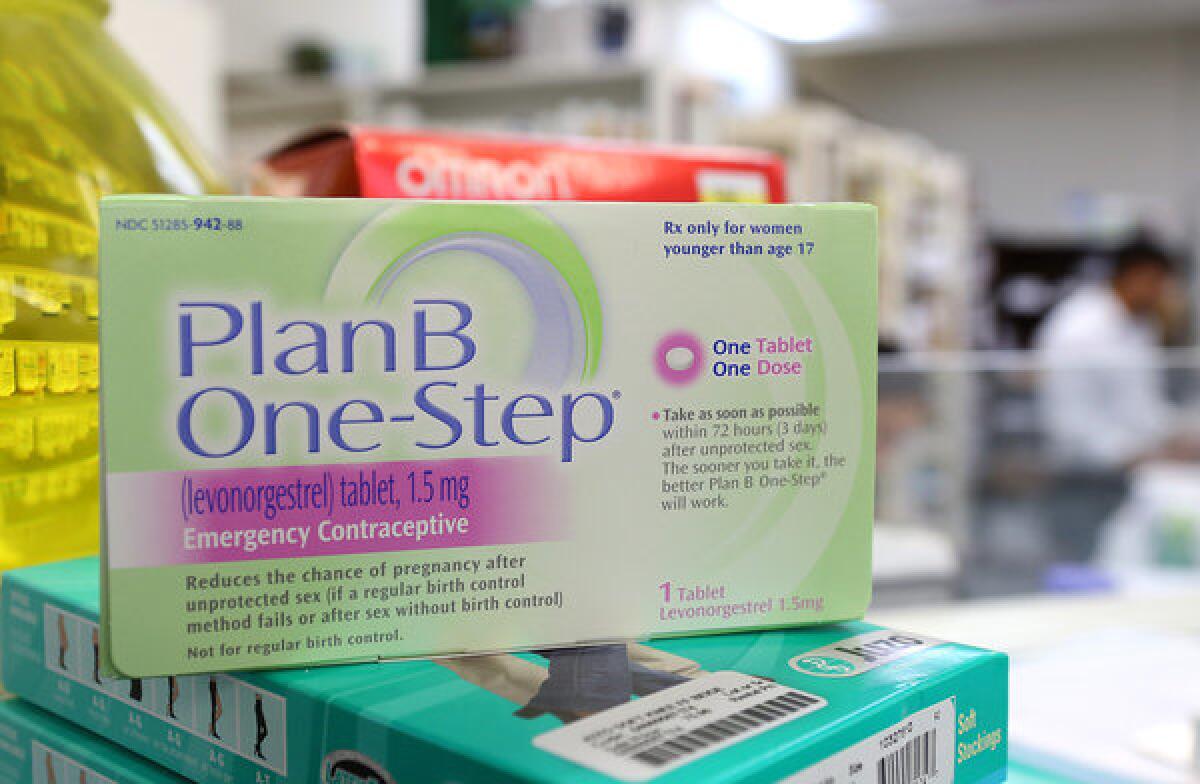Plan B One-Step debate continues

- Share via
Confused by the wrangling in federal court over the Plan B One-Step emergency contraceptive? You’re not the only one.
As U.S. attorneys work hastily to halt a federal judge’s order regarding the sale of the so-called morning-after pill, medical and reproductive rights groups weighed in on the hot-button controversy, which mixes issues of drug safety, social mores and politics.
“It’s an issue of constitutional separation of powers,” said Dr. Gilbert Ross, medical director of the American Council on Science and Health, an organization that seeks to bring scientific facts to political debates.
“It’s not specifically related to the nature of the drug, its safety and efficacy, who should have access to it and who shouldn’t.”
Women’s rights groups have expressed disappointment with the Obama administration’s decision to maintain age restrictions on the drug.
“While the President has been a champion for women, he’s behind the curve when it comes to Plan B,” read a statement from Nita Chaudhary, of the organization Ultraviolet. “We need him to catch up. Plan B should be available over-the-counter to women of all ages. It’s the right thing to do.”
Plan B One-Step is just one brand of emergency birth control that uses the synthetic hormone levonorgestrel to prevent pregnancy by blocking ovulation and impeding the mobility of sperm. It does not cause an abortion in women who are already pregnant, nor does it harm a developing fetus.
Reproductive rights groups have urged the Food and Drug Administration for more than a decade to make the drug available to all consumers without a prescription. As a result of litigation, U.S. District Judge Edward Korman of New York ordered that all levonorgestrel-based emergency birth control drugs be made available to all consumers over the counter by Monday.
In a harshly worded ruling, Korman said the decision to maintain age restrictions on the drug was “arbitrary, capricious and unreasonable,” and placed blame on Health and Human Services Secretary Kathleen Sebelius, as well as pressure from two White House administrations.
The Department of Justice announced Wednesday that it was seeking to overturn Korman’s order in the U.S. 2nd Circuit Court of Appeals. U.S. attorneys have also asked that the judge’s order be stayed, pending resolution of the appeal.
“A stay of the court’s order will prevent public uncertainty regarding the status of the drugs,” wrote Loretta Lynch, U.S. attorney for the Eastern District of New York. “If the status of these drugs is changed and later reversed, it can lead to situations in which women mistakenly believe that they can obtain the drug without a prescription or at certain locations where it used to be, but is no longer, available.”
Lynch wrote that the appeal was justified because it was up to the FDA, not the court, to determine how drugs were sold. “The public properly relies upon FDA classification of drugs as nonprescription as a reflection of the agency’s judgment regarding the safety and proper use of a drug without a doctor’s prescription,” Lynch wrote in court documents.
Critics have argued that easy access to the drug would encourage sexual activity and promote the spread of sexually transmitted infections.
The controversy over the drug has been complicated by the fact that the FDA announced earlier in the week that it was lowering the minimum purchasing age for the drug from 17 to 15 years old. The drug can be purchased without a prescription, but consumers must show ID proving their age.
FDA officials said their decision was based on a pending, amended application submitted by the drug’s manufacturer, Teva Womens’ Health Inc., and was not related to Korman’s order.
Return to Science Now blog.
Follow me on Twitter @montemorin







